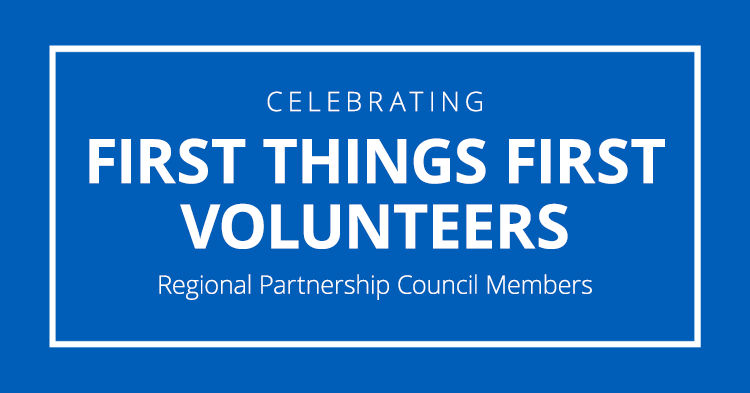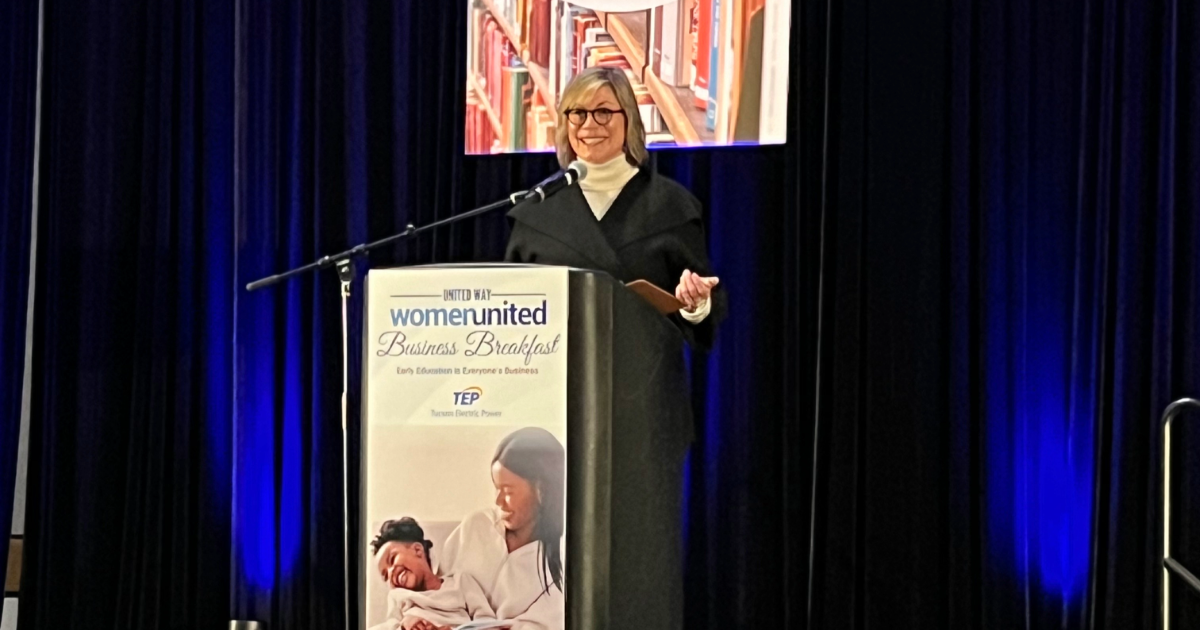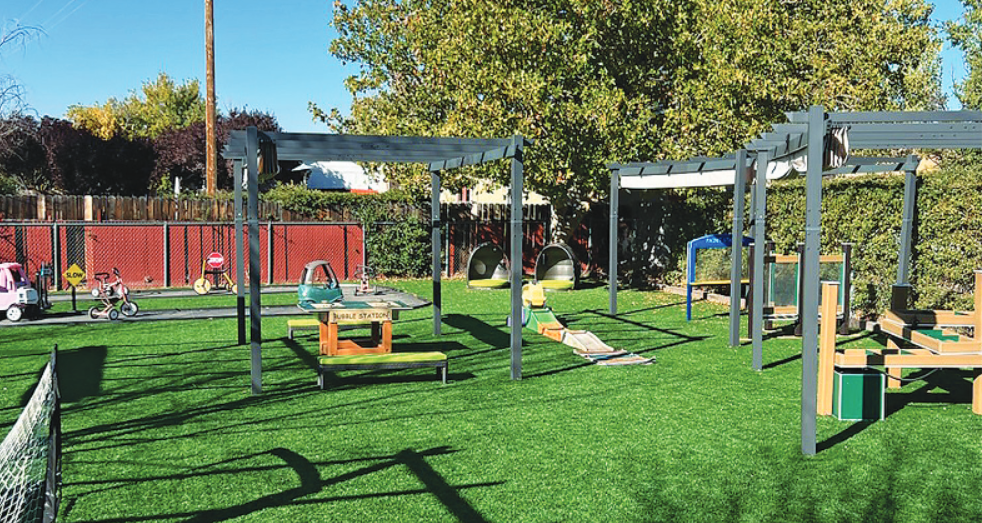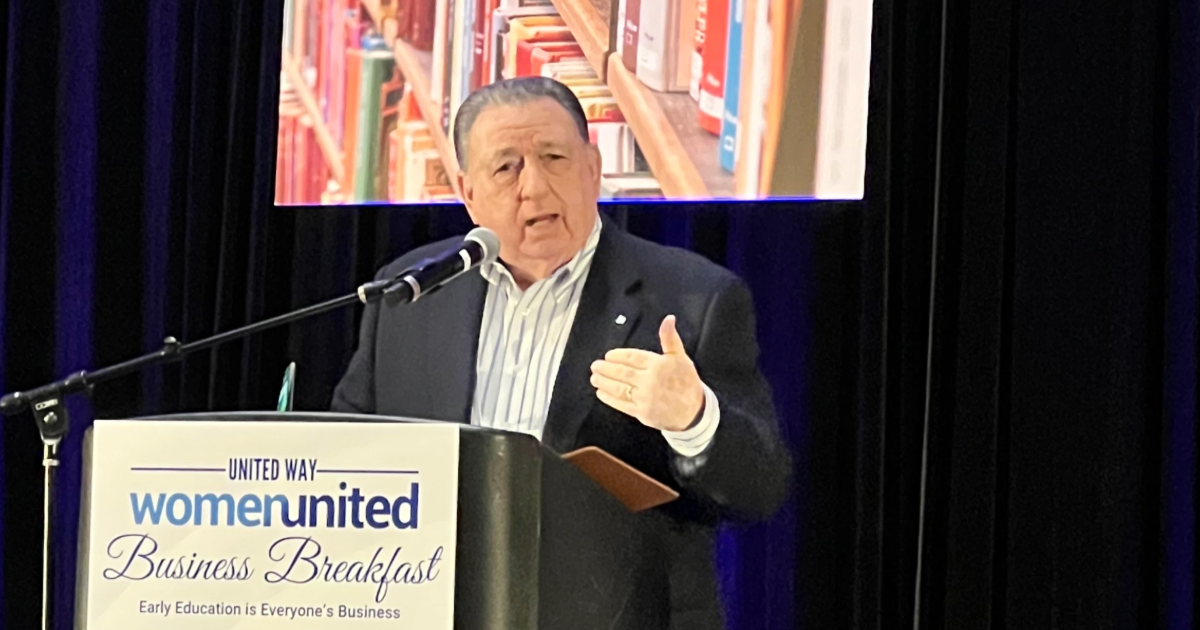
As Arizona’s early childhood agency, First Things First is dedicated to helping children from birth to age 5 get a strong start in life.
That work is done in communities throughout the state through the nearly 300 volunteers who serve on 28 FTF regional partnership councils. These volunteers are integral in making recommendations to the FTF Board about how best to address the needs of young children and their families in their communities.
“Each regional council member represents a different facet of expertise and passion,” said FTF’s Chief Regional Officer K Vilay. “They bring an understanding of how important early childhood is and why it’s important for their community. They’re the voice and reflection from each of their respective perspectives in their community.”
The statewide FTF Board and regional partnership councils share the responsibility of ensuring that early childhood funds will result in improved outcomes for young children. This tiered governance structure ensures that Arizona’s early childhood funds have statewide impact, while honoring local needs.
Over the next few months, FTF will be spotlighting long-time regional council members through a series of short question and answer articles. We kick off this series in April, which is National Volunteer Month.
Recently we spoke with FTF regional council members from the Cocopah Tribe, Graham/Greenlee and Pima South regions. Answers have been edited for clarity.
Lizzie Renaud, FTF Cocopah Tribe Regional Council

Lizzie Renaud is the early childhood educator representative on the FTF Cocopah Tribe Regional Council and is currently serving as vice chair. She is in her 10th year on the FTF regional council. Renaud is an early childhood education professor and Director of the Center for Teaching Effectiveness at Arizona Western College in Yuma. She is an academic advisor and serves on college-wide committees representing non-traditional academic programming. Renaud is a native of Hawaii and is the mother of four children.
What do you bring to the regional council’s work as a representative?
I think when I first started 10 years ago, I brought what I would consider youth. We were a very mature group with several elders and individuals, I felt like I was a baby. I was one of the infants coming in bringing different ideas from perhaps a different generation. Ten years later, I feel like one of the elders myself, but not really. I’m kind of in that middle area where you’ve been around long enough and yet you still have ideas that are fresh and new, but always looking backward. I’m of native Hawaiian heritage and although I am not a member of the Cocopah Tribe, I believe that I am a sister of native peoples. And so when I speak, I speak of we and I speak of plural, but I don’t speak for Cocopah people, they can speak for themselves. As I stand and represent, I recall my own struggles as a native person and I think of what I would like to achieve. And I think, what’s really important for a native people today is really viewing our voice. Our humanness at being at the foundation.
What are you most proud of in the work of the regional council?
I am really excited that we’ve come to a point during the time that I’ve been there, we actually had a full council. There are currently some vacancies, but I do recall having a full group and having a very rich view from which to make decisions for how best to use the funding and resources that we can provide.
I also believe that our home visitor program is essential, I tell my students at Arizona Western that. As a human being, I have to always say, “Okay, with my person hat on – not with my professor hat on or anything like that – but with my person hat, I truly believe that very, very young children belong at home.” And I know that we don’t always have the opportunity to stay at home. You know, we live in times where we need to have more than one income. And sometimes some families only have one caregiver in their family. And so, the opportunity is not always available to all.
I know families in which dads have taken that primary caregiver role as well. I’ve also known families where there was another family member, whether it be an older sibling, or a grandparent or an aunt or not even a person that shares Cocopah blood, but is someone that shares that affinity and love for that family. I think the world is really small for young children. And that in our times right now we need to focus on a child’s early years. We need to focus on families. What I really like about the home visitation program is that it allows families to be families and it allows parents to take this really active role as first teachers for young children.
Susan Norton, FTF Graham/Greenlee Regional Council

Susan Norton is the early childhood educator representative and vice chair for the FTF Graham/Greenlee Regional Partnership Council. She has been a member of the regional council for 10 years. She is an early childhood education instructor at Eastern Arizona College. Norton is also an online instructor for Brigham Young University-Idaho, teaching child development, early childhood and literacy courses. She is especially loving her new connection to early childhood as a grandma to her grandson. Norton was born in Morenci and moved to Thatcher when she was 15. She and her husband raised four children in the community.
What FTF project are you most proud of?
Everything (FTF does) is meaningful because they’re influencing families and children in some way. Some of my favorites are the literacy efforts that we’ve made like the Dolly Parton Imagination Library and with our local library. They’ve taken what we have given and run with it. It’s fun to be in a partnership with our library because they are creating meaningful programming and resources for families in our area.
If you look at the impact report and look at the number of books that have been given to children. That’s something that you could take for granted, because we’ve done that for a while. But when you visit a home and see the books or you hear children talking about getting books in the mail, it’s something that on the surface is so simple, yet so meaningful in their lives. They’re collecting a library and engaging in literacy with their families.
What makes the FTF Graham/Greenlee Region unique?
Being in this rural area, what we have access to is limited. Take health care for example. So we put our heads together. How can we draw pediatricians to the area? Or therapists, occupational and speech therapists how do we draw them in? Also, when we are able to find ways to work together to meet the needs of children and families here by partnering with others to identify the needs of the children and how we can support them with what we have. It’s unique here because we are a rural area and we know each other and our council works beautifully as a team.
How do you hope your work on the regional council impacts babies, toddlers and preschoolers in your community?
It’s a beautiful trickle-down process. We make these resources available, then spread the word on how to access these resources. That is where I hope it is making the greatest impact. By way of greater readiness for school, greater social-emotional functioning, healthier bodies and minds. It’s wonderful to see the spirit of teamwork.
Dave Dumon, FTF Pima South Regional Council

Dave Dumon is the school administrator representative and is the past chair of the FTF Pima South Regional Council. He is in his eighth year on the regional council. Dumon is superintendent of the Altar Valley School District, a preschool through grade eight school district located southwest of Tucson. Dumon has over 20 years of experience in education and school administration. He and his wife are raising a young daughter.
What do you bring to the regional council’s work as a representative?
I feel really fortunate. I’ve been in education for 28 years. Prior to coming to Altar Valley, I was a director of federal programs and community education. I curated Title One preschools and worked with special education preschools. And before that, I was a school principal.
When I came to Altar Valley I didn’t have a child, then I joined the council and also had a child. She’s 7 now. So my whole time on the regional council, I’ve been living the birth to age 5 life. I’ve always been passionate about kids and doing what’s best for kids. But when you have your own child, it’s another level that I didn’t even know. I’ve seen firsthand, through my child, what we’re trying to do here.
What FTF project are you most proud of?
We’ve done a lot of neat things, like recently we did a diaper drive. But something I’ve been passionate about and we’ve been working on is a family resource center for the community. That’s actually been one of our goals and it’s actually moving forward. I think it’s going to be great for the community.
What impact is FTF making in your community?
It comes down to the work that FTF is doing in the community. Take the Quality First preschool in our district. We’re getting these families in early as a 3-year-old and a 4-year-old, and coming to our school and they’re becoming part of our family. They’re able to tap into the different services that we have. They’re becoming a part of our family fun nights, our holiday celebrations, and all the different things we do. The families learn that school is a fun and safe place. And we let families know that we are here for them and that we’re a resource.




